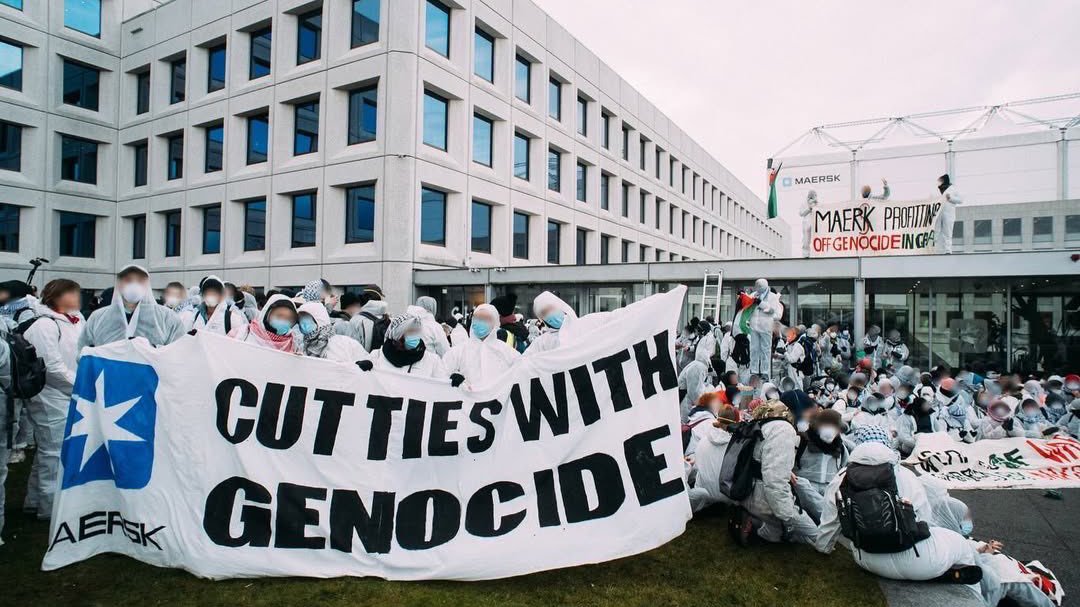The unstrategy of U-turns (and Copenhagen Pride’s Failure)
Whenever I write an article like this, I send it out to my mailing list. You can subscribe here if you want to receive my writings in your inbox.
U-turns are a part of politics, and a part of campaigning.
In the age of instant news, social media and scandal politics, it’s ever more important to understand when a U-turn is the correct decision - and when it’s not. I am not, here, talking about pre-planned U-turns, such as when Trump’s use of pre-planned U-turns as part of his trade tariff negotiation strategy. No. I’m talking about when you decide something, and are then pressured to change your position. U-turns are obviously unstrategic (since they are not planned as part of the strategy) but they are often tactically necessary.
In the case of Copenhagen Pride’s positioning on Israel-Palestine, I would argue we have a very clear example of when a U-turn is not strategic.
In 2024, Copenhagen Pride took a stand on Israel and Palestine. The political leader of the event posted a statement saying that Pride was asking all of their sponsors to explain any business they have with Israel and Palestine, stating that if the businesses gave an unsatisfactory answer they “will not be our partner in 2024”.
This was a particularly brave thing to do given their sponsors included the likes of Maersk, a Danish company who ship Israel many of the weapons being used in the genocide of Palestinians, and are consequently one of the main targets of pro-Palestinian activists in the country, through the campaign Mask Off Maersk.
What followed was an entirely predictable crisis of corporate backlash.
The February 2025 occupation of Maersk headquarters in Copenhagen, which made international news partly thanks to Greta joining it.
In response, an avalanche of sponsors pulled out in protest at the move. Communications executives went crying to the media, complaining of “breaches of trust”.
In response, the Pride executives performed a screeching U-turn, going way further than even distancing themselves from this position. First, they denied that they ever had this policy, and then went as far as to suggest that there is a symmetrical war between Israel and Palestine.
“To put it very clearly: Copenhagen Pride does not choose sides in the conflict [between Israel and Palestine], and we do not ask our partners to do so either… We should have been more open and direct in our dialogue with you, and we are sorry for that. You deserve better from us”.
With sponsors not satisfied, they went on to scrap their ethics policy (now they simply require sponsors to adhere to United Nations standards - the bar is fucking low) and replaced much of the event’s leadership, including the political leader who made the original statement.
All this, presumably, to tempt sponsors back.
But here’s the thing: despite the U-turn, the sponsors haven’t come back.
They performed the U-turn in April 2024, a full four months ahead of Pride, and ended up with 36 sponsors - half as many as the year before. In 2025, despite positive headlines talking about “the return of companies”, they ended up with just 38 sponsors.
So what’s the deal?
I think there is a simple explanation: corporations do not care about queer rights as much as they care about their own profits, and we are in an increasingly anti-woke political climate, which makes sponsoring Pride less attractive. Look at the tech oligarchs racing to scrap their DEI policies to appease Trump, or how magazines aimed at queer audiences are struggling to find advertisers. It’s clear that this is about more than just Copenhagen. Indeed, when Danish company Chr. Hansen Holding, which produces food ingredients, withdrew their sponsorship of Pride, they also removed the pride flag from their logo and any other signs of support for queer rights from their website and social removed the all signs, claiming that they were receiving “serious threats and aggressive accusations from US customers.
The new political leader of the event opened Pride with a speech addressing this point:
“Some of our previously strong allies in business are wavering. Not because they are against LGBTQIA+ rights, but because we are all facing uncertain times that are difficult to navigate. But it has never been more important to stand firm than now.”
There is a very obvious point here about the flaw of building a corporate protest model which relies on sponsorship to exist (i.e. that this allows those companies to dictate your political positions), but we’re not here to talk about the corporate takeover of Pride. We’re here to talk about U-turns, so let’s return to that point.
Get the latest changemaking strategies in your inbox.
For corporate Pride events, there will inevitably be tensions between their political positioning and their business model built on corporate advertising. The original statement that the political leader of Pride made was a principled attempt to show solidarity. The problem is that this position was at odds with the corporate model of event sponsorship that Copenhagen Pride (and most Pride events in large Western European cities) has built. It was entirely predictable that many of these companies would be unhappy with the statement, and try to leverage their significant power over the event to make them change position.
The fact that Pride made such a big U-turn suggests that either the organisers did not think the statement through, or it genuinely was a one-man-mission that never reflected the positioning of the organisation.
But regardless of how they arrived at the statement, the U-turn itself was a tactical mistake. It assumed good faith on the part of the corporate sponsors - that if Pride could distance itself from the Israel-Palestine statement, and show companies that they would not hold them to any meaningful moral standard, the sponsors would come back. In reality, the Israel-Palestine statement was a convenient excuse for sponsors to stop spending money, and to end the liability they entail from showing support for the basic freedoms of queer people.
So what should they have done differently? As it is, they have the worst of both worlds - lacking both sponsors and credibility. My Copenhagener friends tell me Pride is noticabely smaller than in a bygone era.
If they believe in a corporate model, they should have not made the original statement, and therefore not given their sponsors an excuse to leave.
If they believe in solidarity, they should have made the statement and then doubled down once the sponsor backlash occurred. It would have been a horrible, conflict-ridden ordeal. More sponsors would have pulled out. They’d be grilled by corporate media. They maybe would have to cut down on free glitter and portaloos. But in the process, Pride would have returned to being what it used to be, and what we increasingly need it to be in an anti-woke world: a protest.
If you’re in politics or campaigning or, frankly, anything that involved making decisions with other people, there will be times when you are forced to consider a tactical U-turn. I encourage you to live by this golden principle if ever a time occurs:
U-turns occur when pressure mounts and leaders decide that abandoning their original position will yield better outcomes than holding the line. That trade-off always comes with a cost: a loss of credibility. The question is whether the gain outweighs the damage. A U-turn only makes sense if the new course will significantly improve your fortune - bringing back supporters, unlocking resources, or rescuing a project. In Copenhagen Pride’s case, the U-turn achieved none of that. Sponsors didn’t return in meaningful numbers, credibility was shredded, and the movement was left weaker. It is a textbook example of when not to turn back.
Anyway, Copenhagen Pride is still a good laugh.


